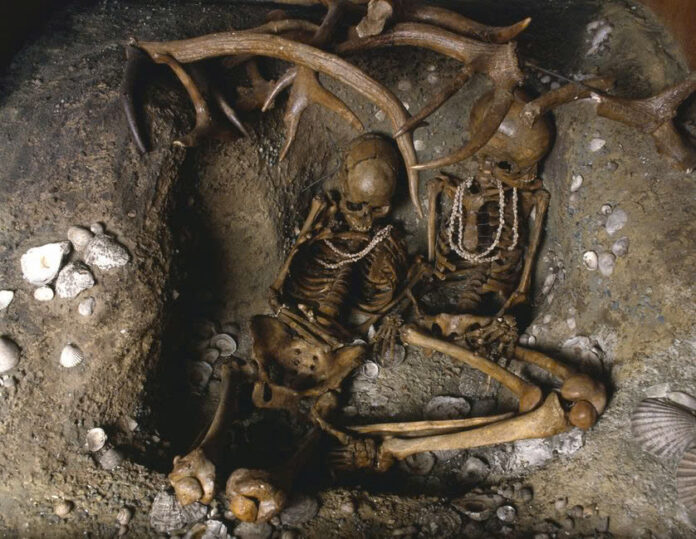The Tragic Tale of Téviec’s Women
A Grave Unveiled: Archaeological Discovery
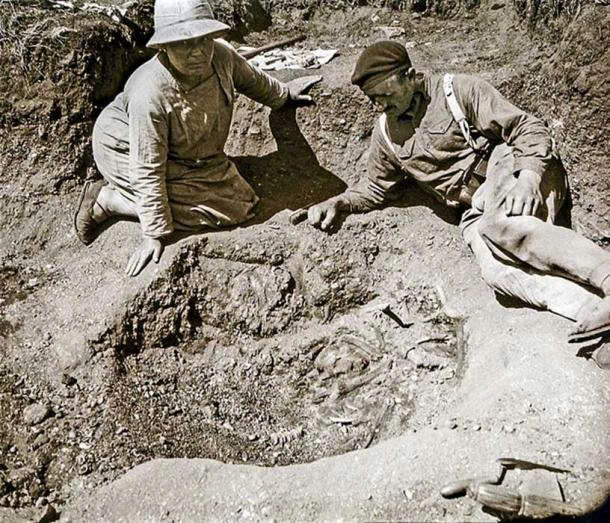
In the rugged coastal expanse of Brittany, France, archaeologists Marthe and Saint-Just Péquart unearthed a burial ground that would challenge conventional wisdom about Mesolithic existence. Over the span of 1928 to 1934, they excavated the remains of two women on Téviec Island, unveiling a narrative of violence, ritual, and survival from millennia past.
Sacred Burial Rites and Relics
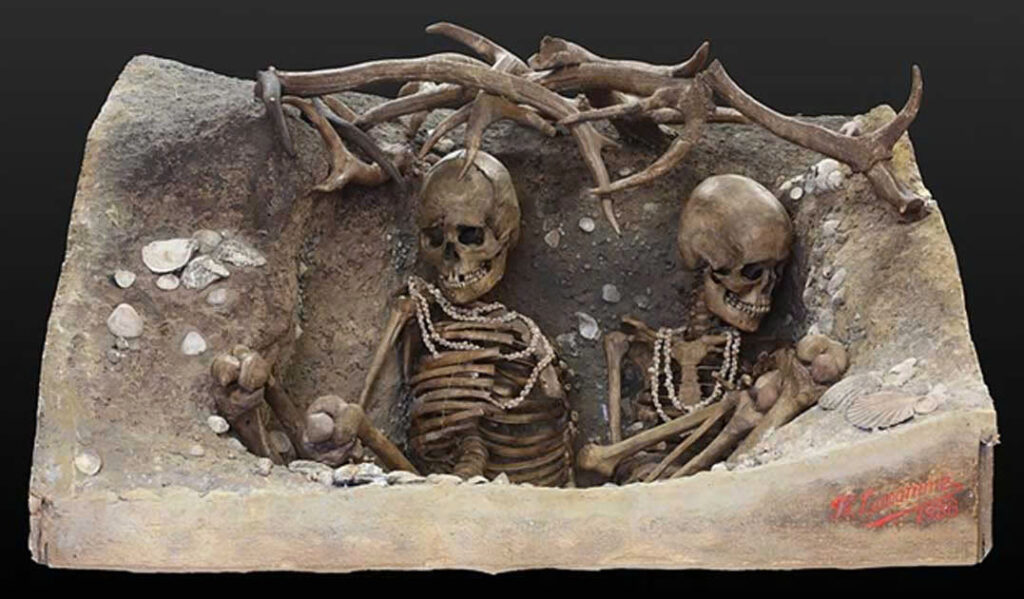
The women received a remarkable burial – their resting place sheltered by a canopy of deer antlers, encircled by an assortment of grave offerings. Adorned with necklaces, bracelets, and leg bands crafted from seashells, they hinted at holding esteemed positions within their society. Complementing the scene were flint tools and boar bones, completing the intricate archaeological tableau.
Forensic Enigmas: Unraveling Violent Passages
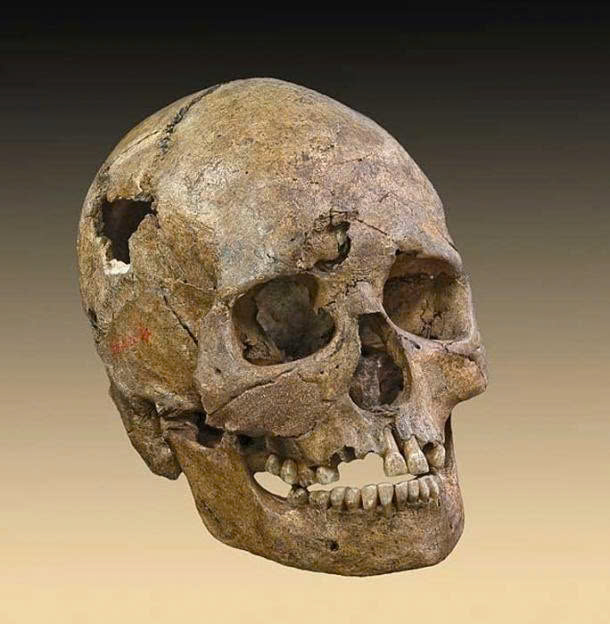
Forensic scrutiny disclosed a chilling account of potential violence. One woman bore multiple head injuries, with an arrow lodged between her eyes – wounds that likely proved fatal. These stark injuries ignited fervent discussions among scholars regarding the circumstances surrounding their demise.
Speculations on Their Demise
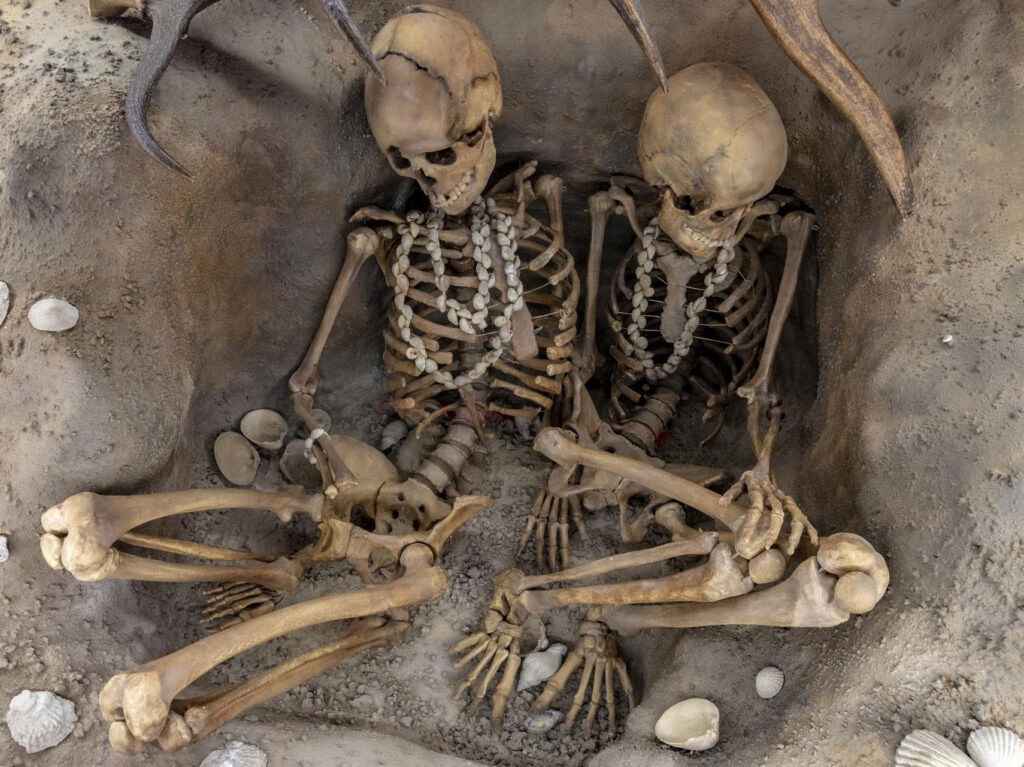
Archaeologists have proposed several theories explaining their violent end:
- Tribal Conflict: Possible raid by a rival group seeking resources
- Ritual Sacrifice: Potential ceremonial killing to appease deities
- Environmental Stress: A response to challenging survival conditions during the Mesolithic period
Life and Lifestyle
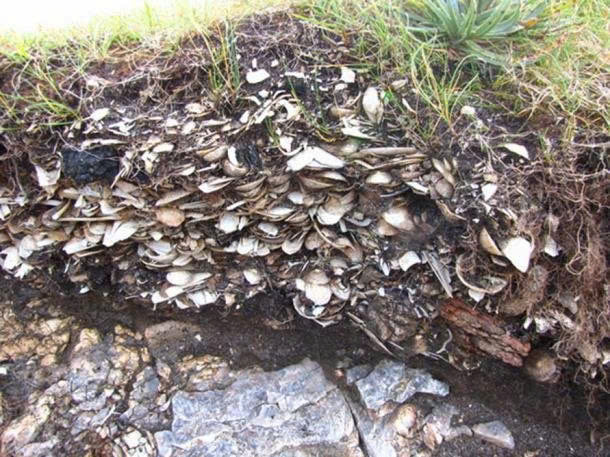
Analysis of their skeletal remains indicated a diet rich in seafood and meat, revealing a community adept at fishing, hunting, and potentially small-scale farming. Their burial site provides a rare, intimate glimpse into the complex social dynamics of prehistoric societies.
A Legacy of Discovery

In 2012, the remains were exhibited at the Toulouse Natural History Museum, attracting over 300,000 visitors. The exhibition transformed archaeological research into a compelling narrative of human survival, conflict, and ritual.
Conclusion: Echoes from the Past
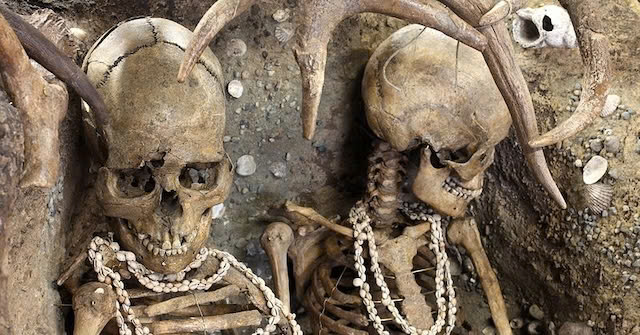
The Ladies of Téviec serve as enduring reminders that human narratives are multifaceted, often marked by violence and interconnectedness. Their sepulcher endures as a testament to the enduring enigma of our forebears, beckoning us to peer beyond the bones and envisage the lives they once led.
